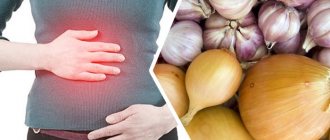When the pancreas becomes inflamed, pain often occurs. To relieve spasms and relax the walls of the organ, use an antispasmodic drug - Duspatalin. The drug has an effect on the smooth muscles of the gastrointestinal tract.
The drug is produced in the Netherlands, produced by Abbott Healthcare Products BV in tablets and capsules. The main active substance of the drug is mebeverine hydrochloride, which stops the flow of sodium and calcium ions into the cell, stopping muscle contractions.
Comparison of the effectiveness of Dicetel and Duspatalin
The effectiveness of Dicetel is quite similar to Duspatalin - this means that the ability of the drug substance to provide the maximum possible effect is similar.
For example, if the therapeutic effect of Dicetel is more pronounced, then using Duspatalin even in large doses will not achieve this effect.
Also, the speed of therapy - an indicator of the speed of therapeutic action - is approximately the same for Dicetel and Duspatalin. And bioavailability, that is, the amount of a drug reaching its site of action in the body, is similar. The higher the bioavailability, the less it will be lost during absorption and use by the body.
How to use?
The tablets contain 125 mg of mebeverine, and the capsules contain a larger amount - 200 mg of mebeverine. Due to the difference in dosage, the method of taking the medicine is also different.
Capsules have a prolonged period of action and are taken in the morning and evening 20 minutes before meals. The action of the capsules lasts for 16 hours, the effect gradually intensifies.
The effect of tablets at a lower dosage occurs faster, within 4 hours. In this dosage form, duspatalin should be taken 3 times a day, before meals, 20 minutes before meals, without chewing, with a sufficient amount of water.
The drug substance does not accumulate in the body and is excreted in the urine within 24 hours. When the medicinal effect is achieved and the symptoms are eliminated, the dose of the antispasmodic must be reduced.
If you continue to take duspatalin for a long time (for 6 months), there are no side effects that seriously affect your health. The drug is not addictive. The duration of the course depends on the presence of symptoms.
The article provides recommended dosages; the method of taking the medicine to a patient is determined by the prescription of the attending physician.
Comparison of safety of Dicetel and Duspatalin
The safety of a drug includes many factors.
At the same time, in Dicetel it is quite similar to Duspatalin. It is important where the drug is metabolized: drugs are excreted from the body either unchanged or in the form of products of their biochemical transformations. Metabolism occurs spontaneously, but most often involves major organs such as the liver, kidneys, lungs, skin, brain and others. When assessing the metabolism of Dicetel, as well as Duspatalin, we look at which organ is the metabolizing organ and how critical the effect on it is.
The risk-benefit ratio is when the prescription of a drug is undesirable, but justified under certain conditions and circumstances, with the obligatory observance of caution in use. At the same time, Dicetel does not have any risks when used, just like Duspatalin.
Also, when calculating safety, it is taken into account whether only allergic reactions occur or possible dysfunction of the main organs. In other matters, as well as the reversibility of the consequences of using Dicetel and Duspatalin.
When is duspatalin prescribed?
Duspatalin is prescribed for colic, spasms, irritable bowel syndrome, constipation accompanied by pain and bloating, impaired passage of bile and juice in the duodenum (dysfunction of the sphincter of Oddi).
Duspatalin for acute pancreatitis
When treating acute pancreatitis during exacerbation of the chronic form, doctors try to reduce the patient’s load on the pancreas, reduce swelling, and relieve pain.
Removal of spasm from the pancreas and sphincter of Oddi (duodenal valve that regulates the flow of bile and pancreatic juice) occurs by administering antispasmodics by injection. Duspatalin is available in the form of tablets and capsules taken orally; it is not suitable for such treatment.
Duspatalin for chronic pancreatitis
With chronic inflammation, loss of elasticity of organ tissue occurs, leading to motor dysfunction. Duspatalin helps maintain tone, regulates the functioning of the gland, the level of bile flow, preventing stagnation. Timely drainage of secretions promotes remission of pancreatitis.
In the chronic form of the disease, days of remission are followed by periods of exacerbations. The main thing in treatment is to establish stable remission. The phases of exacerbations are similar to acute pancreatitis; similar processes occur at a lower intensity.
For exacerbations and acute pancreatitis, duspatalin is not used. If the period is not pronounced, without severe pain and vomiting, it is allowed to resort to the help of a medicine.
The main property of duspatalin is considered to relieve pain, which becomes a salvation for the patient in difficult times.
Take duspatalin for pancreatitis as part of complex therapy.
Comparison of addiction between Dicetel and Duspatalin
Like safety, addiction also involves many factors that must be considered when evaluating a drug.
So, the totality of the values of such parameters as “syndrome o” in Dicetel is quite similar to the similar values in Duspatalin. Withdrawal syndrome is a pathological condition that occurs after the cessation of intake of addictive or dependent substances into the body. And resistance is understood as initial immunity to a drug; in this it differs from addiction, when immunity to a drug develops over a certain period of time. The presence of resistance can only be stated if an attempt has been made to increase the dose of the drug to the maximum possible. At the same time, Dicetel has a fairly low “syndrome” value, just like Duspatalin.
Colitis due to irritable bowel
Colitis: what is it?
Unlike IBS, colitis is an inflammatory disease that affects the intestinal wall.
Depending on the nature of the disease, acute and chronic colitis are distinguished.
Chronic colitis
It is believed that chronic colitis is diagnosed in half of people with digestive problems. A characteristic symptom is unstable stool: alternating constipation and diarrhea. In addition, loss of appetite leading to weight loss, nausea, belching, and a feeling of bitterness in the mouth may occur. The combination of such symptoms requires examination of the entire gastrointestinal tract. In this case, the disease can occur with or without periodic exacerbations of symptoms.
Acute colitis
Acute colitis has pronounced symptoms, which, as a rule, occur simultaneously with inflammation of the stomach or small intestine. In the acute form, aching, sometimes throbbing pain occurs, and unstable stools are supplemented by possible impurities of blood or mucus.
Depending on the cause, there are several types of acute colitis, but we will consider only those that occur most often.
Infectious colitis
It is provoked by certain types of bacteria, viruses and parasites. They can enter the body from the outside, for example, by drinking contaminated water or not thoroughly washing fruits and vegetables. With a high level of intoxication in the body, infectious colitis may be accompanied by nausea and fever.
Toxic or drug-induced colitis
Occurs against the background of self-administration of medications, especially antibiotics or laxatives. Manifested by symptoms of severe poisoning: fever, nausea and vomiting. Possible stabbing, cutting pain in the abdomen, headache, nausea, dizziness, weakness, and general malaise.
Differences between colitis and irritable bowel
| Comparison criteria | IBS | Colitis |
| Nature of the disease | An intestinal disease associated with impaired intestinal motility . | An intestinal disease associated with an inflammatory process in the intestines . |
| Symptoms | Symptoms of IBS do not include signs of poisoning and inflammation (fever, vomiting, etc.), as well as additional discharge/impurities in the stool (mucus, blood, etc.) | May be manifested by fever, vomiting, nausea. Possible rectal bleeding, mucus and blood in the stool. |
| Health care | If the diagnosis is known, then independent monitoring of the course of the disease is allowed*. | A doctor's supervision is required, especially during the acute period. Hospitalization to a hospital is often necessary. |
| Treatment | The cause of the disease is related to a person’s lifestyle, which is not always possible to change quickly. That is why symptomatic treatment plays an important role in the treatment of IBS . | As a rule, treatment is prescribed by a doctor. The goal of drug treatment is to eliminate inflammation and its consequences. |
| Complications | Does not increase the risk of serious complications, including cancer.2 | The inflammatory nature of the disease can lead to the development of complications such as bleeding and tissue necrosis. |
Comparison of side effects of Dicetel and Duspatalin
Side effects or adverse events are any adverse medical event that occurs in a subject after administration of a drug.
Dicetel's side effects are almost the same as Duspatalin's. They both have few side effects. This implies that the frequency of their occurrence is low, that is, the indicator of how many cases of an undesirable effect of treatment are possible and registered is low. The undesirable effect on the body, the strength of influence and the toxic effect of Dicetel are similar to Duspatalin: how quickly the body recovers after taking it and whether it recovers at all.
Contraindications to the use of duspatalin
Contraindications to the use of duspatalin include:
- Individual intolerance, allergic reactions or hypersensitivity to the components of the drug. If itching, urticaria, or swelling occurs, you should stop taking the drug immediately.
- Childhood. Not recommended for children under 18 years of age due to insufficient clinical trials.
Pregnant and breastfeeding women should take it with caution.
Since there is no information about whether mebeverine hydrochloride is excreted in breast milk, it is recommended to stop breastfeeding while taking the medicine.
Clinical trials have not been conducted in pregnant women. It is permissible to use it if the benefits of treatment outweigh the risks to the unborn child.
Duspatalin has no effect on driving a car or other vehicles.
Comparison of ease of use of Dicetel and Duspatalin
This includes dose selection taking into account various conditions and frequency of doses. At the same time, it is important not to forget about the release form of the drug; it is also important to take it into account when making an assessment.
The ease of use of Dicetel is approximately the same as Duspatalin. However, they are not convenient enough to use.
The drug ratings were compiled by experienced pharmacists who studied international research. The report is generated automatically.
Last update date: 2020-12-04 13:44:05
Composition and action of Duspatalin
The active component of Duspatalin is mebeverine hydrochloride in a dosage of 135 mg, 200 mg. Other substances refer to auxiliary and shell elements. The drug is made in 2 dosage forms - white tablets, opaque capsules marked “245”.
The country of origin is the Netherlands, the patent holder is the pharmaceutical corporation Solvay Pharmaceutical. ATC code of the drug is A03AA04.
Mebeverine relieves spasm of intestinal smooth muscles, but does not affect its motility. The food bolus progresses at a normal physiological speed while taking the drug. Vitamins and nutrients are absorbed as usual.
The active component has an analgesic effect on the intestinal mucosa. The active substance Duspatalin does not cause constant relaxation of smooth muscles or hypotension of the colon.
Duspatalin is rapidly absorbed from the stomach. After administration, the drug undergoes prehydrolysis, does not enter the bloodstream and is not detected in the plasma. Metabolites are excreted in the urine and slightly in feces. Does not accumulate in tissues and is not addictive when used for constipation.








